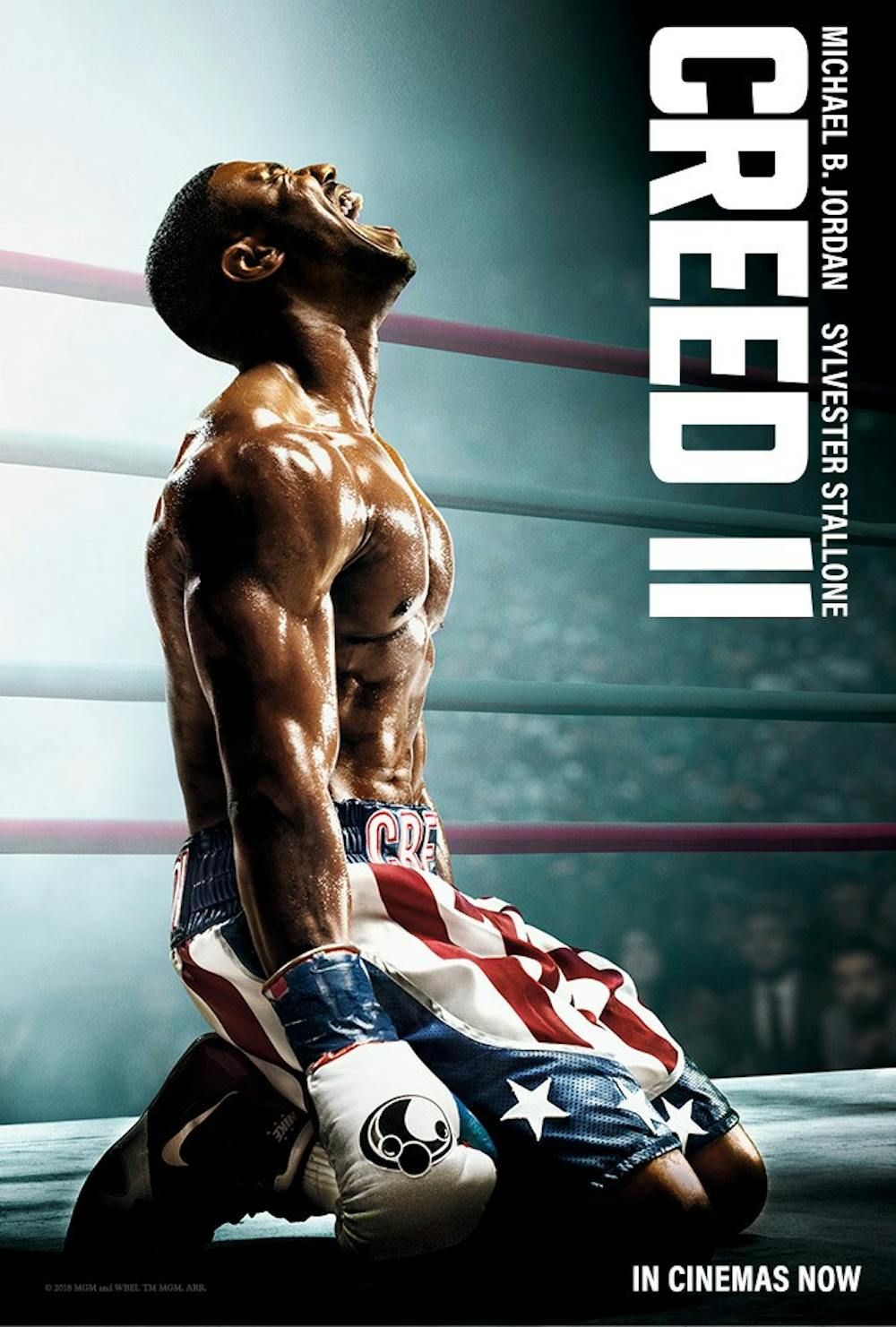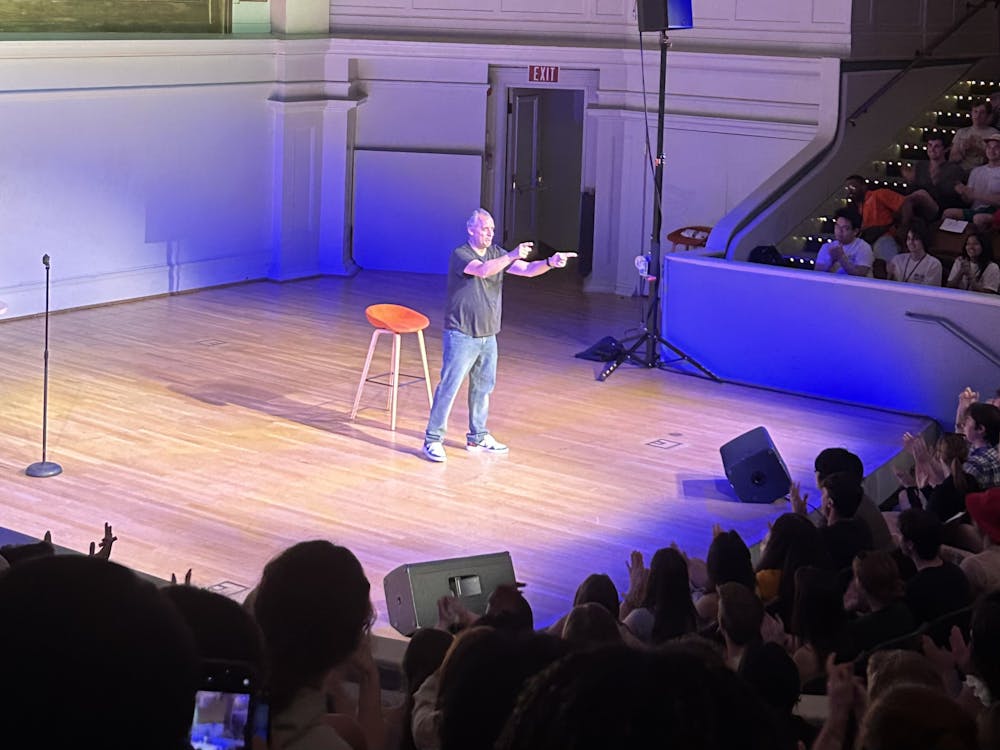After nine years of dormancy, the venerable “Rocky” sports film franchise was revived with a spinoff sequel in 2015, “Creed,” in which Adonis Creed (Michael B. Jordan) sought the help of former series protagonist Rocky Balboa (Sylvester Stallone) in following in the footsteps of his deceased father, former heavyweight boxing champion Apollo Creed. This more sober but still exhilarating entry into the franchise was propelled by great writing, stellar choreography, wonderful performances and above all, a keen understanding of the “Rocky” legacy, and the film earned immense critical praise. “Creed” put a great amount of effort into proving worthy of carrying the torch handed down by the “Rocky” series, but the sequel, “Creed II,” almost seems to be trying now to hand the torch right back.
In the three years since the events of “Creed,” Adonis has taken the fast track to success and now finds himself at a great turning point in his life, as he looks to turn his contender rank into a world championship belt and turn his girlfriend Bianca (Tessa Thompson) into his wife. However, on the precipice of his future, Adonis is greeted by a monster from the past — Ivan Drago (Dolph Lundgren), the disgraced Soviet champion boxer who killed Apollo Creed in the ring in “Rocky IV,” arrives in America with his son Viktor (Florian Munteanu) to settle old grudges and reclaim lost honor.
So from the outset, the film is casting a very deliberate eye towards “Rocky IV,” and is relying rather heavily on series history to drive the plot. The first “Creed” had a somewhat similar approach in that it took many cues from the first “Rocky” film, but “Creed” maintained that Adonis and Rocky were different characters with different stories to tell, presenting new material with the old and moving the franchise forward into a new era. “Creed II,” on the other hand, feels regressive and uninterested in Adonis’ identity. So much of the film asks Adonis to do the things that Rocky did, to fight the way that Rocky fought, to follow Rocky’s lead, that the film feels more worthy of the title “Rocky 4.5” than “Creed II.”
Even the film’s score reflects a crisis of identity. “Creed II” is much less hesitant than the first “Creed” to directly lift classic Rocky musical motifs. This usage is certainly appropriate in the moment, even powerful, but overall it contributes to the feeling that the film does not belong to Adonis.
The problem that this regression creates is one of dissonance. By treating Adonis as though he is basically Rocky, the film is confronting him with a main conflict that doesn’t directly relate to him and recommending solutions that don’t apply well to his secondary conflicts. Adonis has much reason to be angry with Ivan Drago, but those feelings don’t translate to his son Viktor, and when Adonis and Viktor do get in the ring a crucial element is lacking between the two — drama. A strange emptiness pervades the film as a result.
However, it would be a serious stretch to conclude that “Creed II” is a bad film, as it does retain many of the strengths of its predecessor. Jordan’s performance both in and out of the ring is top-notch, a combination of his talents for supreme physical coordination and earnest emotive expression. Stallone somehow manages to appear tough but weary, wise but hokey in an almost inexplicably appealing and unique depiction of a character that he’s devoted the better part of his career to. Lundgren and Munteanu, though underserved in screen-time, hold up their ends as intimidating antagonists burdened by unseen scars of history.
Despite several notable changes in production crew, “Creed II” retains some of the visual acuity and style that put the previous film a cut above the average sports movie, delivering powerful sensations of struggle, strength and success to the eye. The choreography is also excellent, serving up dynamic motion and explosive impacts, but choppy editing makes it difficult to thoroughly appreciate. The editing, combined with a reliance on orthodox camera angles, reveals a typical pacing and framing that at times makes “Creed II” feel indistinguishable from other stereotypical boxing films, but whether such details are bothersome or even noticeable will vary from viewer to viewer.
“Creed II” is not much worse of a film than the first “Creed,” but it is much less of a film worth watching. By not fighting nearly as hard to carve out its own identity, “Creed II” falls into the trap of being just another entry into the “Rocky” franchise. The film sought to empower itself by donning the gloves of the “Rocky” legacy, but ended up being burdened by them instead, and despite the energy and focus it started with it dropped its guard and took a solid shot to the jaw. Now stands “Creed II,” disoriented and hands down, not able to match the knockout success of its predecessor.





